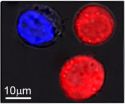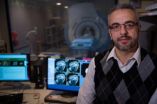(Press-News.org) ALEXANDRIA, Va. — The American Society of Clinical Oncology (ASCO) has just released its annual report on the top cancer advances of the year. Clinical Cancer Advances 2012: ASCO's Annual Report on Progress Against Cancer, highlights major achievements in precision medicine, cancer screening and overcoming treatment resistance.
"Consistent, significant achievements are being made in oncology care with novel therapeutics, even in malignancies that have previously had few treatment options, as well as defining factors that will predict for response to treatment. ASCO's report distills the most significant of these advances that are impacting the lives of cancer patients today," said Bruce Roth, MD, Co-Executive Editor of the report."
Many of the top clinical research advances of 2012 involve therapeutic approaches that stem from our growing understanding of the complex biology of cancer, which enables development of targeted drugs and treatments tailored to molecular characteristics of individual patients and their tumors. This research has led to seven new FDA approvals for anticancer agents in 2012, some of which will help patients with treatment-resistant forms of cancer.
The top cancer advances from this year include:
Two new therapies which delay progression of advanced breast cancer – One study found adding targeted therapy to hormonal therapy delays disease progression in postmenopausal women with advanced hormone receptor-positive breast cancer
Another advance was an armed antibody or "smart bomb" approach called TDM-1 to selectively deliver medicine to HER2-positive breast cancer cells, leaving healthy cells alone
Research finding that pre-operative chemotherapy and radiation improves survival for patients with esophageal cancer
A study showing screening with flexible sigmoidoscopy reduces colorectal cancer incidence and death rates
Research showing a new targeted treatment extends survival for patients with advanced prostate cancer
The large number of advances featured in this year's report showcase the payoff of the national investment in clinical cancer research on prevention, screening, survival and quality of life for patients with cancer. The report, now in its eighth year, features 87 studies, 17 of which were designated as major advances by the report's 21-person editorial board.
This year's report also contains "The Policy Environment: ASCO in Action in 2012" section, which outlines some of the key cancer policy issues facing physicians and patients, including addressing the nation's cancer drug shortages and ensuring all patients have access to high-quality care. Additional topics covered in this section include ASCO's initiative to build a rapid learning system for oncology called CancerLinQ and the Society's recommendations for improving quality and value in cancer care through the Choosing Wisely® campaign and ASCO's Top Five list.
###Download a fully interactive copy of the Clinical Cancer Advances 2012 report at www.cancerprogress.net/cca.
About the Report
Clinical Cancer Advances was compiled and edited under the guidance of 21 renowned experts in specific fields of cancer research. The editors reviewed research published in peer-reviewed scientific or medical journals and presented at major scientific meetings over a one-year period (October 2011-September 2012). The 2012 CCA features a total of 87 studies, 17 of which are considered major, meaning they represent research results that are practice-changing, published in a peer-reviewed journal, and/or reports on treatments that received U.S. Food and Drug Administration (FDA) approval in the past year. The CCA is intended for anyone with an interest in cancer care, including, patients, caregivers, concerned family and friends of cancer patients, oncologists and other medical professionals, policymakers, and cancer advocacy organizations. The report and additional resources are available at www.cancerprogress.net/cca and has been published online in the Journal of Clinical Oncology (www.jco.org).
About ASCO
The American Society of Clinical Oncology (ASCO) is the world's leading professional organization representing physicians who care for people with cancer. With more than 30,000 members, ASCO is committed to improving cancer care through scientific meetings, educational programs and peer-reviewed journals. ASCO is supported by its affiliate organization, the Conquer Cancer Foundation, which funds ground-breaking research and programs that make a tangible difference in the lives of people with cancer. For ASCO information and resources, visit www.asco.org. Cancer information is available at www.cancer.net.
American Society of Clinical Oncology issues annual report on state of clinical cancer science
Report highlights the year's most significant developments in research, policy
2012-12-04
ELSE PRESS RELEASES FROM THIS DATE:
Plant organ development breakthrough
2012-12-04
Stanford, CA — Plants grow upward from a tip of undifferentiated tissue called the shoot apical meristem. As the tip extends, stem cells at the center of the meristem divide and increase in numbers. But the cells on the periphery differentiate to form plant organs, such as leaves and flowers. In between these two layers, a group of boundary cells go into a quiescent state and form a barrier that not only separates stem cells from differentiating cells, but eventually forms the borders that separate the plant's organs.
Because each plant's form and shape is determined ...
Russian Far East holds seismic hazards that could threaten Pacific Basin
2012-12-04
For decades, a source of powerful earthquakes and volcanic activity on the Pacific Rim was shrouded in secrecy, as the Soviet government kept outsiders away from what is now referred to as the Russian Far East.
But research in the last 20 years has shown that the Kamchatka Peninsula and Kuril Islands are a seismic and volcanic hotbed, with a potential to trigger tsunamis that pose a risk to the rest of the Pacific Basin.
A magnitude 9 earthquake in that region in 1952 caused significant damage elsewhere on the Pacific Rim, and even less-powerful quakes have had effects ...
Study spells out hat trick for making hockey safer
2012-12-04
TORONTO, Dec. 3, 2012—Mandatory rules such as restricting body checking can limit aggression and reduce injuries in ice hockey, making the game safer for young people, a new study has found.
Rule changes could be incorporated into existing programs that reward sportsmanship and combined with educational and other strategies to reduce hockey injuries, according to researchers at St. Michael's Hospital.
The need to address the issue is critical, said Dr. Michael Cusimano, a neurosurgeon. Brain injuries such as concussions frequently result from legal or illegal aggressive ...
Children with autism arrive at emergency room for psychiatric crisis 9 times more than peers
2012-12-04
BALTIMORE, Md. (December 3, 2012) – In the first study to compare mental health-related emergency department (ED) visits between children with and without autism spectrum disorders (ASD), researchers found that ED visits are nine times more likely to be for psychiatric reasons if a child has an ASD diagnosis. Published in the journal Pediatric Emergency Care (Epub ahead of print), the study found externalizing symptoms, such as severe behaviors tied to aggression, were the leading cause of ED visits among children with ASD. Importantly, the likelihood of a psychiatric ED ...
Curiosity shakes, bakes, and tastes Mars with SAM
2012-12-04
NASA's Curiosity rover analyzed its first solid sample of Mars in Nov. with a variety of instruments, including the Sample Analysis at Mars (SAM) instrument suite. Developed at NASA's Goddard Space Flight Center in Greenbelt, Md., SAM is a portable chemistry lab tucked inside the Curiosity rover. SAM examines the chemistry of samples it ingests, checking particularly for chemistry relevant to whether an environment can support or could have supported life.
The sample of Martian soil came from the patch of windblown material called "Rocknest," which had provided a sample ...
Alzheimer's researcher reveals a protein's dual destructiveness – and therapeutic potential
2012-12-04
A scientist at the University of British Columbia and Vancouver Coastal Health has identified the molecule that controls a scissor-like protein responsible for the production of plaques – the telltale sign of Alzheimer's disease (AD).
The molecule, known as GSK3-beta, activates a gene that creates a protein, called BACE1. When BACE1 cuts another protein, called APP, the resulting fragment – known as amyloid beta – forms tiny fibers that clump together into plaques in the brain, eventually killing neural cells.
Using an animal model, Dr. Weihong Song, Canada Research ...
Search for life suggests solar systems more habitable than ours
2012-12-04
SAN FRANCISCO—Scattered around the Milky Way are stars that resemble our own sun—but a new study is finding that any planets orbiting those stars may very well be hotter and more dynamic than Earth.
That's because the interiors of any terrestrial planets in these systems are likely warmer than Earth—up to 25 percent warmer, which would make them more geologically active and more likely to retain enough liquid water to support life, at least in its microbial form.
The preliminary finding comes from geologists and astronomers at Ohio State University who have teamed up ...
DNA analysis of microbes in a fracking site yields surprises
2012-12-04
SAN FRANCISCO—Researchers have made a genetic analysis of the microbes living deep inside a deposit of Marcellus Shale at a hydraulic fracturing, or "fracking," site, and uncovered some surprises.
They expected to find many tough microbes suited to extreme environments, such as those that derive from archaea, a domain of single-celled species sometimes found in high-salt environments, volcanoes, or hot springs. Instead, they found very few genetic biomarkers for archaea, and many more for species that derive from bacteria.
They also found that the populations of microbes ...
Multitasking plasmonic nanobubbles kill some cells, modify others
2012-12-04
HOUSTON – (Dec. 3, 2012) – Researchers at Rice University have found a way to kill some diseased cells and treat others in the same sample at the same time. The process activated by a pulse of laser light leaves neighboring healthy cells untouched.
The unique use for tunable plasmonic nanobubbles developed in the Rice lab of Dmitri Lapotko shows promise to replace several difficult processes now used to treat cancer patients, among others, with a fast, simple, multifunctional procedure.
The research is the focus of a paper published online this week by the American ...
Listen up, doc: Empathy raises patients' pain tolerance
2012-12-04
A doctor-patient relationship built on trust and empathy doesn't just put patients at ease – it actually changes the brain's response to stress and increases pain tolerance, according to new findings from a Michigan State University research team.
Medical researchers have shown in recent studies that doctors who listen carefully have happier patients with better health outcomes, but the underlying mechanism was unknown, said Issidoros Sarinopoulos, professor of radiology at MSU.
"This is the first study that has looked at the patient-centered relationship from a neurobiological ...
LAST 30 PRESS RELEASES:
ASU researchers to lead AAAS panel on water insecurity in the United States
ASU professor Anne Stone to present at AAAS Conference in Phoenix on ancient origins of modern disease
Proposals for exploring viruses and skin as the next experimental quantum frontiers share US$30,000 science award
ASU researchers showcase scalable tech solutions for older adults living alone with cognitive decline at AAAS 2026
Scientists identify smooth regional trends in fruit fly survival strategies
Antipathy toward snakes? Your parents likely talked you into that at an early age
Sylvester Cancer Tip Sheet for Feb. 2026
Online exposure to medical misinformation concentrated among older adults
Telehealth improves access to genetic services for adult survivors of childhood cancers
Outdated mortality benchmarks risk missing early signs of famine and delay recognizing mass starvation
Newly discovered bacterium converts carbon dioxide into chemicals using electricity
Flipping and reversing mini-proteins could improve disease treatment
Scientists reveal major hidden source of atmospheric nitrogen pollution in fragile lake basin
Biochar emerges as a powerful tool for soil carbon neutrality and climate mitigation
Tiny cell messengers show big promise for safer protein and gene delivery
AMS releases statement regarding the decision to rescind EPA’s 2009 Endangerment Finding
Parents’ alcohol and drug use influences their children’s consumption, research shows
Modular assembly of chiral nitrogen-bridged rings achieved by palladium-catalyzed diastereoselective and enantioselective cascade cyclization reactions
Promoting civic engagement
AMS Science Preview: Hurricane slowdown, school snow days
Deforestation in the Amazon raises the surface temperature by 3 °C during the dry season
Model more accurately maps the impact of frost on corn crops
How did humans develop sharp vision? Lab-grown retinas show likely answer
Sour grapes? Taste, experience of sour foods depends on individual consumer
At AAAS, professor Krystal Tsosie argues the future of science must be Indigenous-led
From the lab to the living room: Decoding Parkinson’s patients movements in the real world
Research advances in porous materials, as highlighted in the 2025 Nobel Prize in Chemistry
Sally C. Morton, executive vice president of ASU Knowledge Enterprise, presents a bold and practical framework for moving research from discovery to real-world impact
Biochemical parameters in patients with diabetic nephropathy versus individuals with diabetes alone, non-diabetic nephropathy, and healthy controls
Muscular strength and mortality in women ages 63 to 99
[Press-News.org] American Society of Clinical Oncology issues annual report on state of clinical cancer scienceReport highlights the year's most significant developments in research, policy


